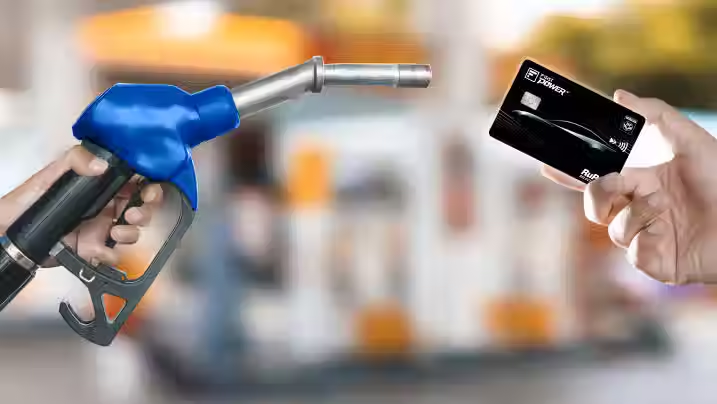How Much Time Does It Take to Deactivate Your Credit Card?
- Mudra K
- Oct 26, 2024
- 4 min read
Updated: Nov 27, 2024
Unfortunately, managing your credit card can be somewhat overwhelming in today's fast-moving financial environment. Whether you are interested in saving money, trying to reduce costs, or perhaps due to a change in your financial situation, you find yourself often questioning the time it takes for one to cancel a credit card. To ensure holistic and proper management of finance with sensible judgement over the available credit, there is a necessity to understand the deactivation process. This is a comprehensive guide on how to cancel a credit card, how long it takes, and what you should be on the lookout for while doing so.
Introduction
Cancelling a credit card can sometimes be necessary to avoid paying annual fees, manage debt, or simply reduce the number of cards in your wallet. However, most people are unsure of the period that it will take to deactivate the credit card and the procedure they should follow. In this article, we shall find out why you should deactivate your credit card, what to do, and how long it will take.

Why You Should Deactivate Your Credit Card?
There are several reasons why one may deactivate his credit card. These include:
1. Annual fees are too high.
Many credit cards charge annual fees with little reason to justify why you need them. When you are not taking advantage of a card's rewards, sometimes it is a beneficial time to close it.
2. Debt Consolidation
If you are working to pay down debt or simply simplify your money, closing one or more of your credit cards will help take your attention off new debt but focus on paying off current balances.
3. Fraud Issue
If you have lost your card or suspect fraud, you can deactivate it immediately to avoid unauthorised transactions and charges.
4. Better Card Upgrade
You may find a new credit card with better rewards or lower interest rates, and you will be prompted to deactivate your old card.
Make sure all outstanding balances are paid off before closing your card. Most lenders will not close an account if there is an outstanding balance on it.
2. Redeem Rewards
If you have rewards points or cashback on your credit card, you might want to redeem them before deactivation. You'll lose those benefits when the account is closed.
3. Update Automatic Payments
Update all of your subscription services and other automatic payments that use your credit card before deactivating the card.
4. Call Customer Service
You can deactivate your credit card through your bank's customer service department via phone or online. You will be required to provide personal information so that the bank can verify that you are the account holder.
Now that you've initiated the closing process, you should ask your bank for written proof of your account being closed. If there is ever any subsequent issue or problem, then you could use this paper-based documentation.
Time Consumed by Account Inactivation
How much time does account inactivation of a credit card consume depends on several things:
1. Inactivation Procedure
You call up the customer service of the bank where your card is issued; over this call, your representative instantly deactivates your card.
Online Application: There are some banks; you can even cancel your card from their website or smartphone application too. This usually is an instant process too.
2. Bank Policies
Different banks have different policies about how much time they take to close and deactivate your account. Average time for most banks has been:
Instant De-activation: In most places, the card gets instantly blocked when you apply for one to be blocked.
Days required for written confirmation by bank: It usually takes some time for the bank to get back to you with a letter stating that the account is closed.
3. Days taken by the bank in processing final transactions
If there are any pending transactions on your account when it is deactivated, you have to process those before you can close the account fully.
What Happens After Deactivation?
Once you've successfully deactivated your credit card, here's what you can expect:
1. No Further Charges
After deactivation, you shouldn't incur any further charges on that account; however, make sure all pending transactions have cleared before considering it fully closed.
2. Impact on Credit Score
Closing a credit card may impact your credit score by affecting the credit utilisation ratio and the length of your credit history.
Credit Utilisation: Closing an account reduces the total available credit for you, and if you continue to carry balances on other cards, it can increase your utilisation ratio.
Credit History: Closing older accounts may reduce your average account age, adversely affecting your score.
3. Credit Report Monitoring
You need to track your report for inaccuracies, making sure that the report actually represents the account's closure in the records.
Conclusion
In brief, how long will it take to close a credit card if I need it deactivated? It is essentially based on when you can close the credit card, based on the decisions you have for activating, and based on which bank policy. Usually, banks let you deactivate it by phone or over the web immediately, while the actual confirmation will take a couple of days. As long as you pay the balance, redeem your rewards points, and adjust your payment instructions, everything will go well until the actual end with closing the account and limiting the adverse repercussions on your financial well-being.
What to Know in Advance
Pay off current balances and redeem your rewards beforehand.
This is usually quicker but still varies from institution to institution.
Monitor your credit report within a month or so of closing an account to ensure its accuracy.
Knowing these factors while managing and turning off credit cards may help you manage your money much better as you make some of the best-informed decisions.
Read More: Credit Card Blogs | Credit Score Blogs













































Comments